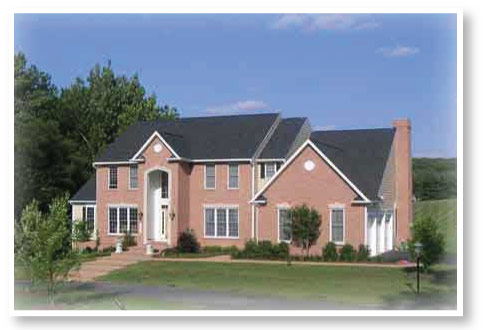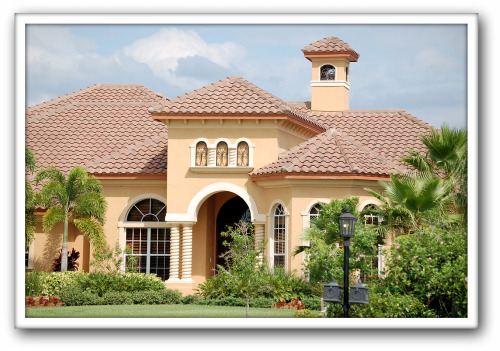Real Estate Investment: Return On Investment and Cash Flow Calculation
Real Estate Investment Articles | Housing Market News and AnalysisReal Estate Investment 101
Why are people so passionate about real estate investment? Whether it's a primary resident house or an investment rental property, real estate is one of the most effective, long-term proven ways to build wealth, provides you make wise decisions and manage your properties properly. There're quite a few benefits that you, as a a real estate investor, enjoy...
Tax Benefits
- You can deduct your mortgage interest and property tax for your primary property. You can depreciate your rental property as a cost even most of the time it's appreciating. Other fix and management costs related to the rental property are deductable as well. Consult with your CPA in detail before investing in real estate.Using Leverage to Build Up Wealth
- You don't need to have all the cash ready like other investments. You can borrow mortgage from bank. With 20% down, you actually leverage 4 times to help you build your wealth.Capital Gain Tax Benefit
- For your primary residence, you can enjoy an exempt of $250,000 capital gain for single or $500,000 capital gain for a couple every two years. For investment property, you can defer the capital gain by using a 1031 tax exchange. This allows you to bypass taxation by deferring the financial gain into your next investment.Long Term Growth
- By buying and holding properties for long term, you build up equity by paying off mortgage and enjoy the long-term house appreciating at the same time. In short term the house price may rise and fall, but in long term they almost always appreciate.A Diversified Investment Portfolio
- By investing in real estate in addition to other options as stock, IRA, 401K and bonds, you have a balanced investment portfolio.
Most of all, our real estate investment provides us the pride of the ownership of a house which we call home.
To be successful in real estate investment, you need to be a cautious and intelligent investor. To determine which property makes investment sense and which not, there's no magic. It's all about math. A careful calculation and conservative analysis of your financial situation will surely increase your chance to succeed.
Despite the many juicy claims from those so called real estate gurus, there is really no secret when it comes to real estate investment. There are usually three types of investment strategies most people do: buy and hold, fix and flip, and rental property.
Buy and Hold
Most people are actually doing the first one they may or may not be aware of. When you buy your primary resident house and living in it for a long time to build up equity, you are already doing the real estate investment even most people do not realize. By buying a house, instead of paying a rent, you pay into your principal and interest. Your interest is tax deductable, your principal decreases and your house appreciates over the years. By the time you retire, you have build up huge equity in your house. When you sell your house, uncle Sam allows $250,000 for a single and $500,000 for a couple capital gain tax free.
It all sounds wonderful but like any other investment, it involves risk. The current wave of forclosures proves that how crucial a wise financial decision can be. Use our All-in-One Real Estate Investment Calculator to do an analysis before you buy. Follow the example in Renting vs Buying to calculate your situation if you are not sure about buying .
Fix and Flip
If you know the market very well, the fix and flip is a quick way to make money. Buy a property at deep discount, fix it up and then sell a few month later at normal market price. But it's also very time-consuming. If you have a full time job and don't plan to spend all your after-work hours on it, it's probably not for you. Fix and flip works better in an up market than in a down market. In an up market, you actually want to hold longer to sell a better price. In a down market, you may not be able to sell at the price you expect. Fix and flip is a good way to make money for real estate professionals, builders and full-time real estate investors but more difficult for part-time investors.
Rental Property
When you buy a rental property, you are looking for positive cash flow. A lot of people buy rental property in a negative cash flow only to hope it goes up in value to make up for the loss. This is called speculation. The result is the huge number of foreclosures in so called sun-belt states. But with a posivite cash flow, even the current house price is falling, you can still sit pretty and wait for the price to come back. It's similar as buy and hold but instead living in it, you rent it out to generate positive cash flow while building up the equity. Follow the calculation in Achieve Positive Cash Flow and our All-in-One Real Estate Investment Calculator to compare different properties with different financial options to determine if a positive cash flow is achievable. Finding a positive cash flow property used to be impossible, but with current wave of foreclosure, with careful selections, it's actually possible now. Right now is a golden opportunity to invest in rental property.
Determine Price Range
Once you decide what type of investment fit you the best, the next question would be how much you can afford. Your family income, your job security and how much cash is available, all those factors determine what price range real estate property is comfortable to you. A general rule of thumb, your monthly payment should not exceed 1/3 of your monthly income or the house price should be around 3 times of your yearly income. Don't buy anything that you can't afford. We all want to live in a million dollar house, but if that means you have to lower your basic living standard then what's the point. Besides mortgage payment, there're a lot other costs you need to consider, such as property tax, insurance, home association fee, yearly maintenance and repair fee etc... In some area, those costs add together are actually comparable to mortgage payment. You can make a huge mistake by ignoring those expenses.
Find a Realtors Work For You
Find a good realtor that really knows the market and works for you can actually save your time and money. Be wary of those realtors who want to sell you the first house you see. Interview several realtors to find one who has the knowledge of the market and understands your needs. Tell the realtor your investment intention, be it your own residence, fix and flip or rental. A good realtor can find the right property for you. A realtor can easily provide a most accurate recent comparable market price for the house you are interested in and the most current rental price in the subdivision from local Multiple Listing Service(MLS). But you still need to do your homework. With an accurate house price and rental price, our All-in-One Real Estate Investment Calculator can easily help you figure out if you can reach positive cash flow and what's your return on investment rate each year.
Search for The Best Mortgage Rate
Shop around to see what local banks and mortgage officers are offering. Bring your credit report and a sample house in your purchase range with you when you meet with them to get a more accurate interest rate and closing costs estimate. Make sure you understand every cost on the estimation. Get a pre-approval letter from your mortgage broker so you have a good idea on the maximum price you can afford on a house.
Make an Offer
Once you find the right property you are looking for. It's time to make an offer. Talk to your realtor to understand the current market condition. Is it a buyer's market or seller's market? Is the listing price overpriced or underpriced? In a buyer's market, you have more power to negotiate it down. But even in an depressed market, you will find multi-offer bid war on a property that's been way underpriced. It's happening right now on those good condition foreclosure properties around the country. If you locate one of them, don't hesitate to jump in and provide a reasonable offer.
Inspection
After your offer is accepted, don't skip inspection. Consult with your realtor what potential issues may happen to a house in this particular area. Not all the problems of the house are visible from outside. Do hire an experienced local inspector to go through the structure and make sure there're no hidden issues in the house. Find it out later may cost you huge amount of money and the headache of a lawsuit.
Close the Deal
Once it passes inspection and your mortgage application is approved, it's time for closing. It usually takes about a month from the day it's under contract to close. After close, the house is officially yours. Wether it's for your own residence, fix-up and flip or rental, you are now ready to execute your investment stragegy.
Don't wait too long. Now it's the once in a life time opportunity to purchase a property. It's the first time in decade that the house price comes down to a reasonable level. With still low mortgage rate, deep discounted foreclosures and $8000 tax credit, it's a golden opportunity. But still remember, be cautious, be cautious, be cautious.
Latest News and Articles

Investor's Resources Center
Check house price
Search homes
Free landlord forms
Tenant credit screen
Foreclosure Search
www.foreclosure freesearch.com
www.freeforeclosure database.com


